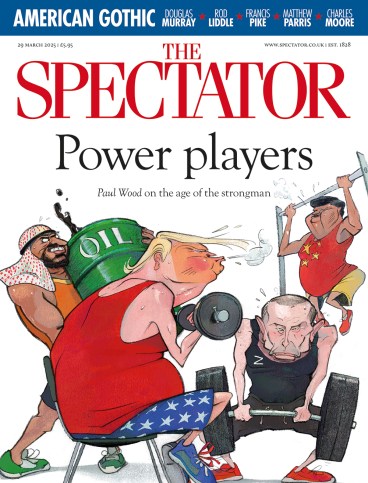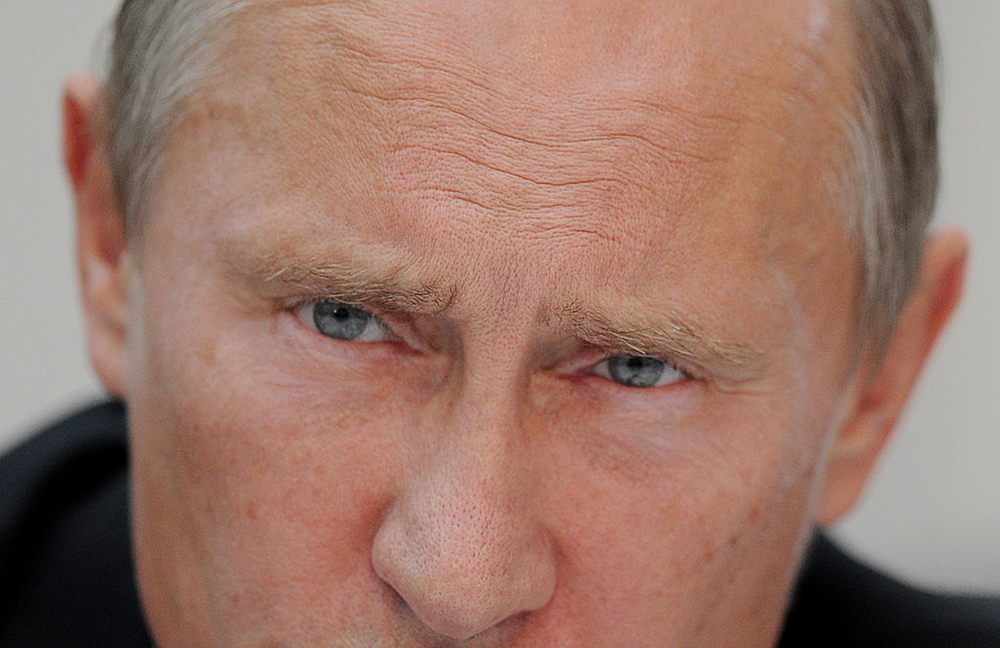
Kyiv
‘It doesn’t surprise me that they’re abolishing the Ministry of Education,’ my old friend Dima told me. ‘Judging by what Steve Witkoff said on the Fox channel, neither history nor geography are taught in America.’ Team Trump’s energetic but purposefully misdirected attempts to push the negotiation processes forward have left Ukrainians in shock. Each day reveals new depths in the Oval Office’s inadequacy and we can only shrug when we hear things like ‘Putin is not a bad guy’ or ‘I feel that he wants peace’. President Volodymyr Zelensky said something similar after his election in 2019, when he promised to negotiate a peace deal with Vladimir Putin within 12 months or resign. Neither peace nor his resignation materialised. A full-scale war began and after three years of fierce fighting, it is no longer Zelensky but Witkoff who sees peace in Putin’s eyes. Putin’s eyes are very small and you would have to look very close to see anything in them, but Ukrainians have long stopped trying to fathom the Russian dictator.
With each day of the ‘peace talks’, the Kremlin shells Ukrainian cities more and more intensively, using new tactics involving large and heavy ‘Geranium’ drones which fly at an altitude of about 6,500 feet. It is almost impossible to shoot them down when they are that high in the sky. As a result, we have seen a sharp increase in the number of victims and extent of destruction caused by each attack. Another ‘new thing’ is how, during a raid, a large number of drones head for one target. Recently, more than a dozen drones made a night attack on Khmelnitsky; then it was Odessa’s turn, and a few nights ago Kyiv was targeted. My family, like many Kyivites, spent that night in the hallway listening to drone explosions and air defence cannonades.
Marco Cervetti, a chef and the best-known promoter of Italian cuisine in Ukraine, does not sleep in the hallway. It’s too uncomfortable. The hallway in his rented apartment is small, and Marco is big – six and half foot tall. So he goes down to the bomb shelter in the basement of his building. This means he has got to know all his neighbours very well. Sometimes he takes a bottle of Sangiovese down there to share. Marco loves to socialise and cook pasta for his friends, but he can’t invite anyone to his home. Long before February 2022, he rented an apartment in an old building next to the Office of the President, in the very centre of the government quarter. Only those who live or work there can get access. The military does not let anyone else past the checkpoints. So Marco often cooks dinner for friends at someone else’s home or in a bar. I missed the last meal he prepared for friends at the Torf bar, ten minutes from my home, but we have already agreed that in April he will cook dinner at my place.
It’s strange, but recently I have started thinking about the future and have already begun planning trips for the summer and autumn. This does not mean that I believe in a quick end to the war. For everyone in Ukraine, the war is a game of Russian roulette. You don’t know when a rocket or a drone will explode near you. Every night and every day, rockets and drones kill and maim people, destroy homes and burn cars with passengers inside. You keep busy and you don’t have time to dwell on it. You carry on, living cautiously, listening carefully, aware of every sound.
Occasionally you notice that you are worrying about some strange, quite insignificant problem. For example, I regularly find myself thinking about the taste of Artemovsk salt from Donbas. All my life I have bought and used this coarse-grained, whitish salt with bits of grit in it. When Russia occupied the town where the mine is situated, stocks were still available throughout Ukraine. But eventually stocks ran out and since then, instead of Artemovsk salt, we have had to make do with Turkish and Polish imports that have their own specific taste – very different from the salt I have enjoyed all my long life. To distract myself from this strange nostalgia I have almost stopped using salt altogether. Sometimes I use soy sauce instead.
The other day I learned that in Transcarpathia there is a ready-to-operate salt mine that could supply salt to all of Ukraine, but it is not working because the co-owners have quarrelled and cannot agree on some aspects of their joint business. A conflict in the salt business during a full-scale war seems absurd. But this is our reality. I only hope the salt mine owners can reach an agreement soon so that production can start. I am very curious – will it taste like salt from Donbas? If so, I will have one less thing to worry about in my life.








Comments